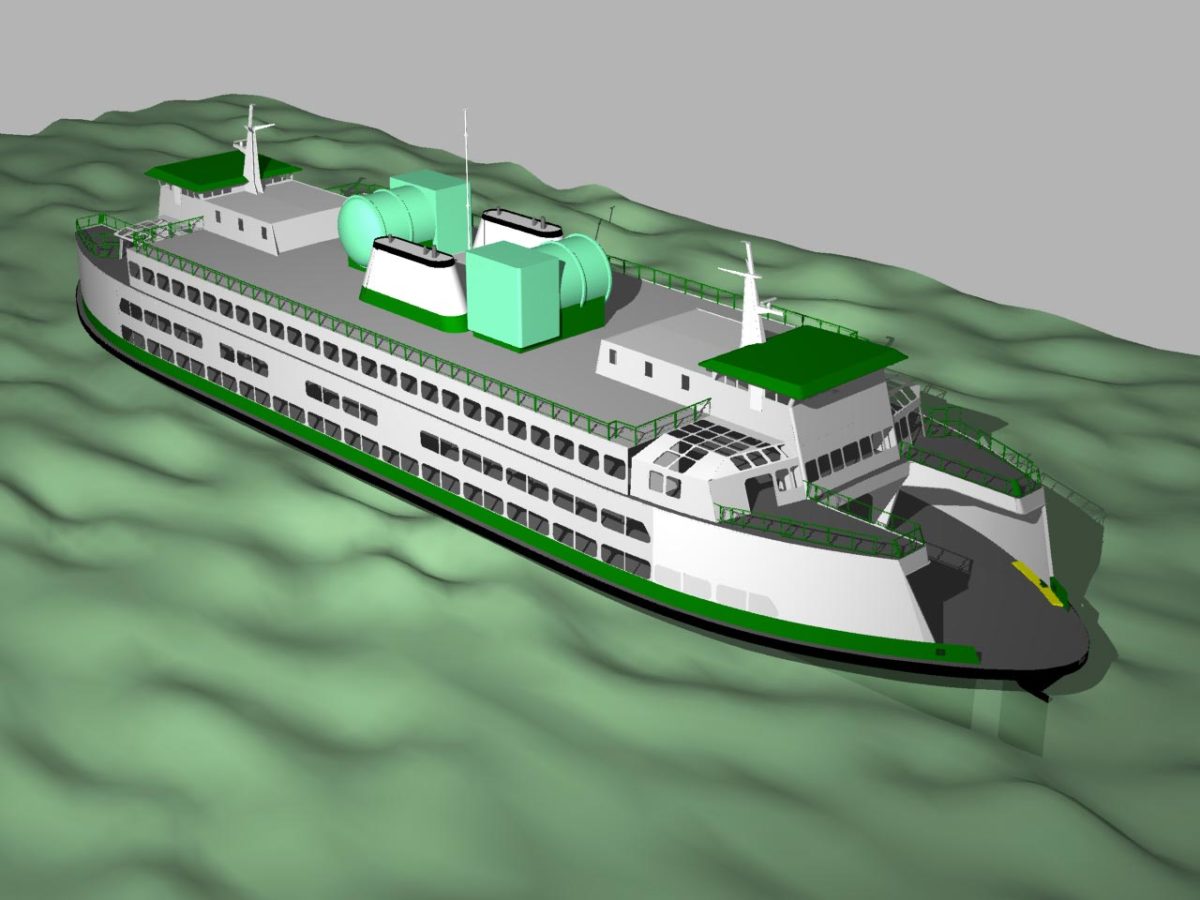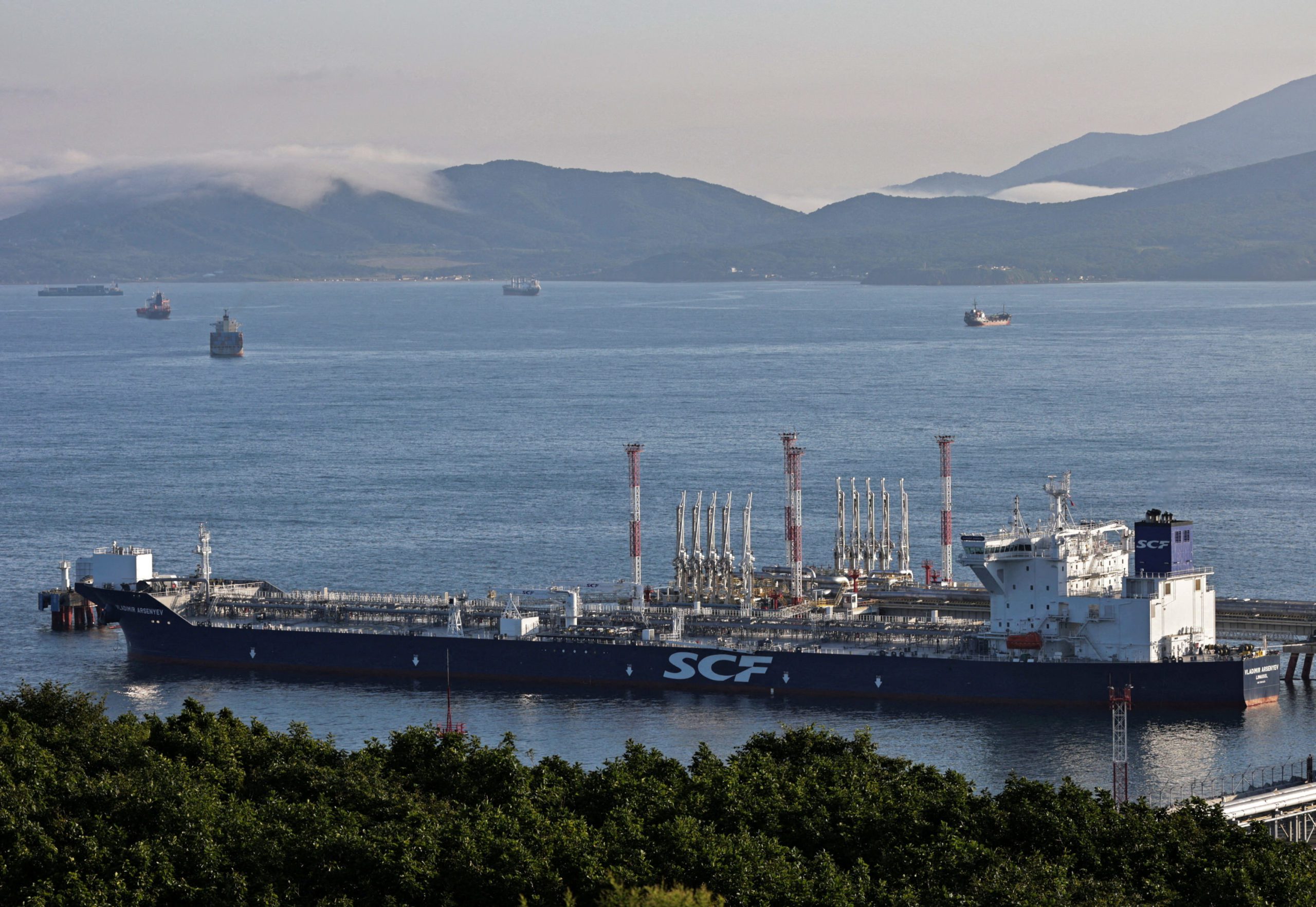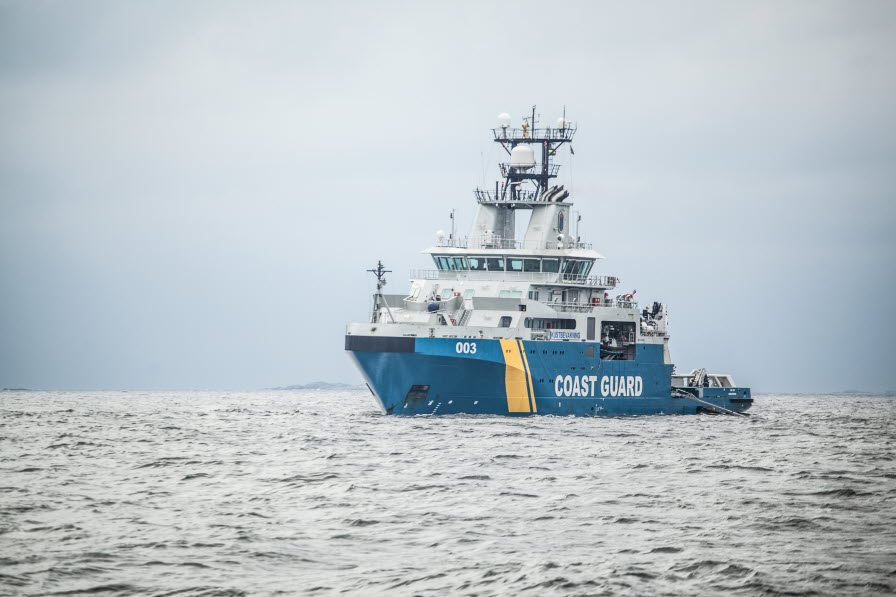An illustration showing LNG tanks on an Issaquah class ferry. Image courtesy Washington State Ferries
Washington State Ferries is now one step closer becoming the United States’ first passenger ferry system to convert at least part of its fleet from diesel fuel to the use of LNG.
WSF announced this week that after more than three years of study, WSF has submitted its proposal to the U.S. Coast Guard, in the form of a Letter of Intent and waterways suitability assessment, laying out its plan to safely convert six Issaquah Class vessels to run on liquified natural gas. The submission of the LOI and WSA marks the official starting point of the Coast Guard’s review process.
“Fuel is WSF’s fastest growing operating expense,” said David Moseley, assistant secretary for the Washington State Department of Transportation, Ferries Division. “Replacing diesel with LNG on the Issaquah Class ferries could result in very substantial savings on fuel over the remaining 30 years of their service life. This will also mean a cleaner, more efficient future for our fleet by significantly decreasing emissions.”
WSF says it expects the Coast Guard to issue a finding regarding the LNG conversion proposal in 2014.
Staten Island Ferry also has plans in the works to convert one of its iconic ferries to run on clean-burning LNG, although no time frame has been provided for the conversion.
The average Issaquah Class vessel carries up to 124 cars and 1,200 passengers, serving on some of the state’s busiest ferry routes. Converting the fuel systems from ultra-low sulfur diesel to LNG would significantly reduce emissions, according to WSDOT’s Air Emissions Model. Specifically, WSF estimates that an LNG-conversion would lead to 89 percent reduction in particulate matter; 61 percent reduction in nitrous oxide; 28 percent reduction in carbon dioxide; and 59 percent reduction in sulfur dioxide.
For the proposed conversions, WSF would install main propulsion engines to use natural gas and retrofit LNG fuel tanks on the top decks of the six vessels. The proposal calls for a phased approach for conversions to avoid schedule changes or delays. Once vessels are converted and back in service, they would begin a routine overnight, out-of-service refueling process similar to current diesel refueling.
Since 2010, WSF has been studying the benefits of alternative fuels and evaluating the feasibility and safety of using LNG to fuel its vessels. The process included the U.S. Coast Guard, multiple agencies at the state and local level, private industry organizations, the Washington State Joint Transportation Committee and consultants including Cedar River Group and Det Norske Veritas.
WSF concluded its study process by issuing the final waterways suitability assessment, which includes a safety and security assessment and a risk-management plan. The study found that the LNG proposal is inherently safe with risks as low as reasonably practicable, WSF says.
Use of natural gas in transportation has been steadily increasing over the last decade. In North America, BC Ferries and Staten Island Ferries are also studying options to retrofit their vessels from diesel to LNG fuel and the Quebec Ferries Company has contracted for three new LNG ferries.
Since 2000, the Norwegian government has allowed the construction and operation of LNG passenger vessels, with currently 20 car and passenger ferries in operation that are fueled by LNG. In addition, LNG passenger vessels currently under construction or in design for service in Argentina, Uruguay, Finland, and Sweden.

 Join The Club
Join The Club











